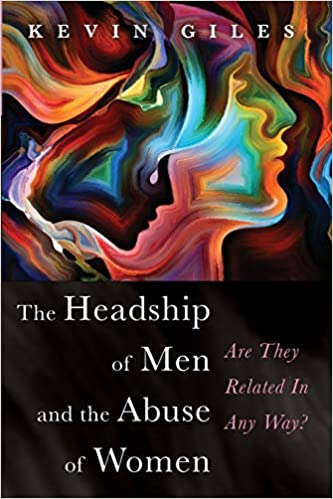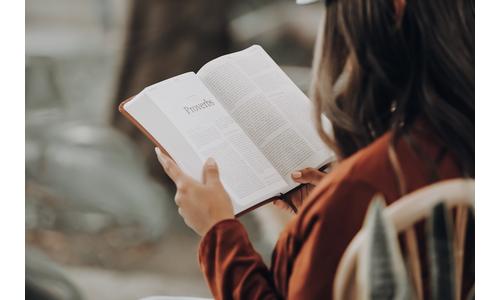Welcome to CBE Australia
Christians for Biblical Equality is a non-profit evangelical Christian organisation for men and women that promotes a biblical basis for gift-based, rather than gender-based, service for men and women of all races, ages and economic classes. Our theology and membership is largely evangelical and we cross denominational lines. We were established in Melbourne in October 2005. As part of CBE International we now have three chapters based in Melbourne Sydney and Perth.
See About CBE for what we believe.
An Egalitarian Marriage

One morning, 19 years ago, I frantically rang Andrew as I stepped out of the lift at Latrobe Uni. "Andrew, are you still here? I think the baby's coming." Andrew had driven me to work that day, as I was 40 weeks pregnant with our 4th child (although not sure why I went to work!!). We both worked for Latrobe Christian Union. I worked one day a week and Andrew 4 days and this was my day to work. He still had our other 3 kids in the car and thankfully hadn't left yet, so he raced me into the hospital. 2.5 hours later we met our youngest son Bradman. Having a fourth child turned out to be a turning point in our marriage.
I think our marriage looks like many other marriages. We bring our personalities, our strengths, our own personal faith and our wholehearted love into a marriage, and this is impacted by our family of origin, our sinfulness, and all the complexities of us as human beings. Andrew married a capable, strong and driven woman and I married a reliable, compassionate, steady and funny man. I knew, as soon as I met him, that he was the sort of guy I wanted to marry and we could serve God well together! I wanted an equal. I didn't want our marriage to be "she or he wears the pants". I wanted it to be us bringing our best before God and into the marriage.
Initially Andrew and I didn't really have a theological stance on men and women in ministry. We just knew we wanted to serve God in any way we could! Over time our views strengthened to be more egalitarian as we read the Bible, articles and books.
Complementarians and Abuse of Women: Kevin Giles' Newest Book
 Kevin Giles latest, and he says, his final book is a challenging look at the practical outworking of a strongly complementarian view of gender relations in the church and home. You can order it online or directly from Kevin himslef if you have his contact details.
Kevin Giles latest, and he says, his final book is a challenging look at the practical outworking of a strongly complementarian view of gender relations in the church and home. You can order it online or directly from Kevin himslef if you have his contact details.
Here is a link to a review from The Melbourne Anglican:
Penny Mulvey reviews his book
It is profoundly sad to even think there is a need for the book I have been asked to review. It is after all, 2020. And I am writing this for a Christian news service. How can it be that the Church in which I was baptised and confirmed, has to be told…no, not just told, but retold, again and again… that its teaching is leading to domestic violence?
Reading the Bible as a Woman
 This was the title I was given, but it is one I am uneasy with, for two reasons. First, it implies that women are a separate category of reader from the normative reader, who is, of course a man. It is not helpful to think of a woman’s perspective as if this were distinct from an “objective” perspective (understood as a male perspective). This is to assume the priority of the male. Was any man ever invited to write an article on “Reading the Bible as a Man”? Probably not, as until the last fifty years or so, reading, interpreting and teaching the Bible were the province of men. And white men, at that. For many years it was assumed that the standard (impartial or neutral) reading is a white male one, and that reading by women or people of colour, the poor or the disabled or any other group, are deviations or specialised readings. Yet every person reads from their own particular perspective, and no one perspective should be privileged above the others.
This was the title I was given, but it is one I am uneasy with, for two reasons. First, it implies that women are a separate category of reader from the normative reader, who is, of course a man. It is not helpful to think of a woman’s perspective as if this were distinct from an “objective” perspective (understood as a male perspective). This is to assume the priority of the male. Was any man ever invited to write an article on “Reading the Bible as a Man”? Probably not, as until the last fifty years or so, reading, interpreting and teaching the Bible were the province of men. And white men, at that. For many years it was assumed that the standard (impartial or neutral) reading is a white male one, and that reading by women or people of colour, the poor or the disabled or any other group, are deviations or specialised readings. Yet every person reads from their own particular perspective, and no one perspective should be privileged above the others.
Second, this title implies that there is a specifically female way of reading the Scriptures that is common to all women. But though women do share some experiences, we cannot speak of a single “woman’s perspective” or “woman’s reading”. A woman’s perspective (like a man’s) is shaped by her particular historical, cultural, social, family and educational back ground and her particular experience. So I cannot speak to how all women read the Bible: only to how I read it as a white, Australian, wealthy, educated, Anglican, baby boomer, wife, mother and grandmother, with a whole range of other particularities (not to say, peculiarities).
Nevertheless, I can identify a number of ways in which my being a woman has shaped my reading of the biblical text. I will discuss them under four headings: gender accurate translations, the dominance of men in the biblical texts, the treatment of women in the Old testament and the treatment of women in the New Testament.
Meet Bessie Harrison-Lee
 Let me introduce you to Bessie Harrison-Lee and her world. It’s a bit of a stretch, thinking we can imagine her world from this distance in time and it is always a temptation to make it fit our labels and our views. Still, there are things for us to learn even if there are things about Bessie (and I hope she would not mind that I call her by that name) that make us scratch our heads and ponder her choices. How do we assess Christian women from over a century’s distance? The first thing to ponder is why more of us don’t know about her. She lived an astounding life, was a feted international speaker with dramatic flair, a prolific writer of Christian materials, and an active campaigner for social improvement. Along with Louisa Lawson and William Lane she was recognised as a strategic reformer in the late nineteenth century.
Let me introduce you to Bessie Harrison-Lee and her world. It’s a bit of a stretch, thinking we can imagine her world from this distance in time and it is always a temptation to make it fit our labels and our views. Still, there are things for us to learn even if there are things about Bessie (and I hope she would not mind that I call her by that name) that make us scratch our heads and ponder her choices. How do we assess Christian women from over a century’s distance? The first thing to ponder is why more of us don’t know about her. She lived an astounding life, was a feted international speaker with dramatic flair, a prolific writer of Christian materials, and an active campaigner for social improvement. Along with Louisa Lawson and William Lane she was recognised as a strategic reformer in the late nineteenth century.
She was born in 1860 into a different world in Daylesford, a small central Victorian hamlet. Her father was a butcher/miner and, because her mother died when Bessie was eight years old, she was sent to live with relatives close to Eildon. Her childhood was an unhappy one in a home affected by alcohol, poverty and violence. After her religious conversion, she married and adopted a temperance lifestyle. She and her railway-worker husband lived in the Footscray and Richmond areas of Melbourne and, concerned about the gross social effects of alcohol, Bessie worked with a doctor visiting the sick and those in gaol. Her first husband died and in 1908 she married a New Zealand farmer and subsequently lived in New Zealand, Hawaii and California.
Page 1 of 8

